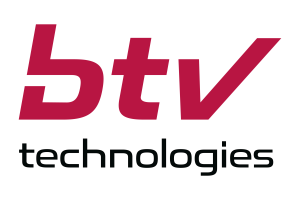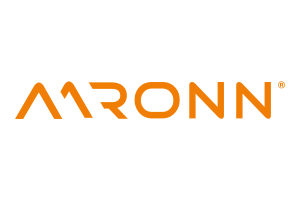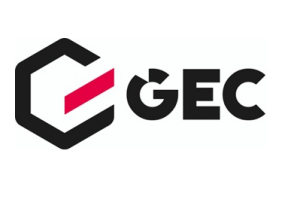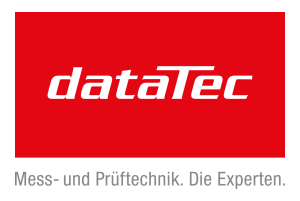The End of an Era
It's Decided: Siemens is Spinning off Healthineers
Germany's flagship group Siemens is relinquishing its majority stake in its medical technology subsidiary Healthineers. Thirty percent will direcly go to shareholders, and in the medium term, only a financial stake will remain. The separation is considered logical — but also raises questions.
November 12, 2025 marks a turning point for the Munich-based technology group: Siemens is relinquishing its controlling stake in its medical technology subsidiary Siemens Healthineers. With the approval of the Supervisory Board, the Executive Board has decided to deconsolidate its current stake of around 67 percent. Around 30 percent of Healthineers shares are to be transferred to Siemens shareholders, preferably in the form of a direct spin-off – a gift worth around €15 billion.
"Today marks the beginning of the next phase of growth for Siemens," explained CEO Roland Busch, as reported by Handelsblatt. The goal is "accelerated, more profitable growth in digital businesses and connected hardware, as well as in the field of industrial AI." The Handelsblatt correctly describes the decision as "historic." In the medium term, the plan is to reduce the remaining stake to a purely financial investment.
Supervisory Board Struggled to Find a Solution
According to sources close to the company, the lively discussion in the supervisory board prior to the decision was "exhausting and protracted." Shareholders had been calling for a separation for some time, as Healthineers did not generate any synergies with the other businesses and tied up a lot of capital. "We support the concept of an integrated one-tech company because, from today's perspective, it offers the best long-term prospects for Siemens," said Jürgen Kerner, second chairman of IG Metall. Healthineers was "no longer really a good fit with the other businesses" – Digital Industries, Smart Infrastructure, and Mobility – in the long term.
However, according to Handelsblatt, Birgit Steinborn, Vice Chair of the Supervisory Board and former Chair of the General Works Council, added that it is now important that "the future proceeds from the sale of shares do not primarily benefit shareholders as a one-off boost to the share price – we demand that the lion's share be reinvested in the company in a smart and forward-looking manner." Deconsolidation offers the potential to create long-term value for Siemens shareholders as a "more focused technology company."
Healthineers Welcomes Clarity
On the other side of the table, there is a sense of relief. "We appreciate the clarity. This is good news for Siemens Healthineers," said CEO Bernd Montag. This paves the way for a "completely independent company, which we began with our IPO in 2018." Montag had already called for this clarity in the months leading up to the announcement; uncertainty about the parent company's future plans had weighed on Healthineers' share price in recent years.
Healthineers, also listed on the DAX, accounts for around 30 percent of Siemens' revenue. The company is the global market leader in medical imaging, for example with computer tomography scanners. With a market capitalization of €50 billion, the medical technology subsidiary is already a DAX heavyweight. Siemens' 67 percent stake is worth just under €34 billion.
Financial Markets React Cautiously
The financial markets had been anticipating this decision: on Wednesday, Siemens' share price rose by two percent to a new high of €251. However, Healthineers shares fell by 2.3 percent. "So far, the focus strategy has paid off," Harald Smolak told Handelsblatt. Smolak is a partner at management consultancy Atreus and was previously a member of Siemens' management team. However, Healthineers is also "a gem within the group that has always ensured a certain stability in results."
Healthineers will benefit from a significantly higher free float and is therefore likely to become more attractive on the capital market, according to Siemens. In the past fiscal year, Healthineers generated a profit of just under €2.2 billion, contributing significantly to the parent company's annual results. The company, headquartered at the former Siemens site in Erlangen, employs more than 70,000 people worldwide.
„One Tech Company“-Strategy
Now Siemens wants to quickly make up for the loss of revenue caused by the spin-off through faster growth in its remaining core businesses, writes Handelsblatt. CEO Busch will present his new "One Tech Company" strategy on Thursday. According to information from company circles, the business areas are to be linked even more closely. This means that technologies will no longer be developed in parallel in different businesses. The company's customer presence is also to be more standardized.
"We are changing the company's operating system," Busch told Handelsblatt. The newspaper reports that industry circles also expect the use of artificial intelligence to improve administrative efficiency, which some fear will lead to job cuts. Busch explained that the acquisitions of US companies Altair and Dotmatics are intended to expand the company's leading position in software and artificial intelligence.
The planned transaction is subject to final regulatory approvals and approval by the shareholders' meetings of both companies. Siemens will work on the specific details of the structure and timetable in the coming months. The company plans to announce further details at the beginning of the second quarter of 2026.
Protection for Employees
Important commitments were made to employees, including unchanged collective bargaining agreements, job and location security, and the company headquarters remaining in Germany. According to IG Metall and the works council, the separation was "ultimately a logical step—even if it was not an easy one." It was important to achieve viable conditions for the separation.
The course has also been set for the succession of the CFO: According to KMA Online, board member Veronika Bienert is set to take over from Ralf Thomas during the 2026 fiscal year. Thomas will then remain chairman of the supervisory board at Siemens Healthineers. Siemens shareholders received an important assurance: the progressive dividend policy will be maintained even after the deconsolidation of Healthineers.
Open Questions Remain
The decision, which is likely to be a hot topic of conversation in the medtech industry at Medica next week, brings the portfolio restructuring of recent years to an end for the time being. Siemens had already spun off its energy technology business as Siemens Energy. However, the fact that the company has held such a large stake in Healthineers for more than seven years did not come up.
As strategically sound as this step may seem, questions remain. Chief Financial Officer Ralf Thomas explained that the deconsolidation would give Siemens more leeway. However, it remains unclear for the time being where exactly the billions freed up will go in order to make the remaining core divisions truly more profitable. The spin-off marks the end of a decades-long era – whether the announced focus will bring the hoped-for added value will become clear in the coming years. For Bernd Montag and his Healthineers, "standing on their own two feet" is likely to have significantly less impact – and may even be good news. (uh)





